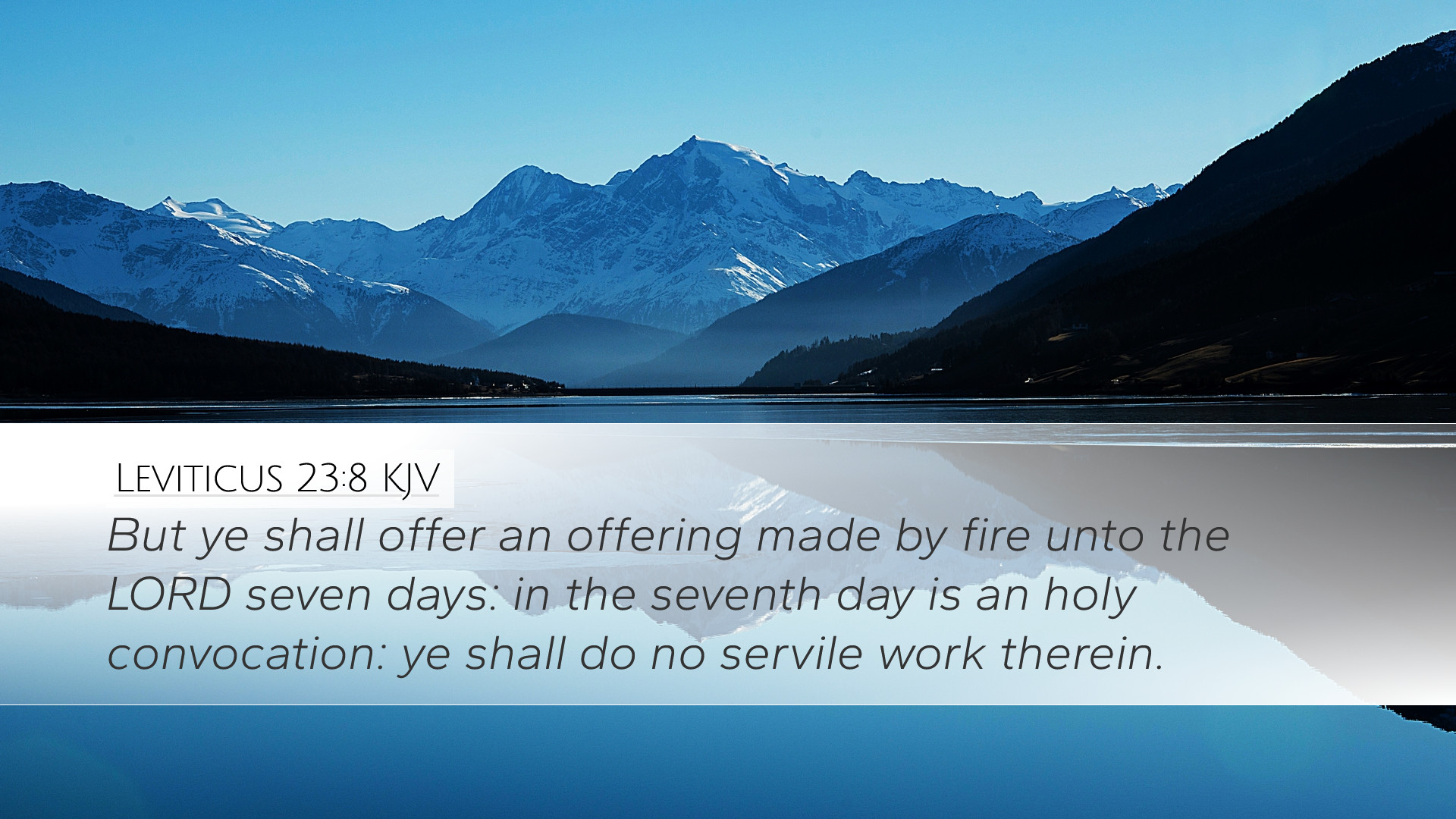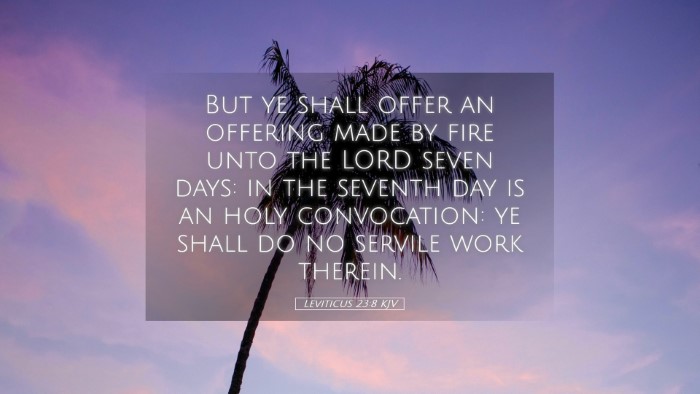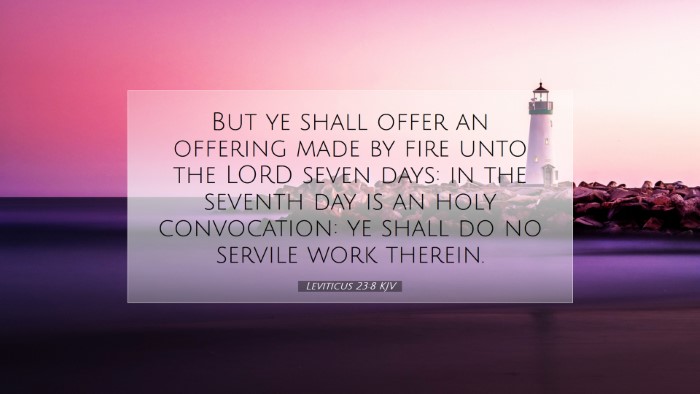Commentary on Leviticus 23:8
Bible Verse: "But ye shall offer an offering made by fire unto the LORD seven days: in the seventh day is a holy convocation: ye shall do no servile work therein." (Leviticus 23:8)
Introduction
This verse is part of the regulations surrounding the Feasts of the Lord as outlined in Leviticus 23. It particularly pertains to the Feast of Unleavened Bread, an essential festival in the Hebrew calendar that commenced with the Passover. The notion surrounding holy observances is foundational for understanding the character of worship in Israel and emphasizes the essential nature of rest and devotion in one's relationship with God.
Contextual Analysis
The offerings prescribed in this verse are critical for understanding the sacrificial system. Matthew Henry notes that these offerings were not solely for atonement but also an expression of gratitude and devotion. The act of presenting an offering made by fire symbolizes both the sanctification of the gifts and the commitment of the offering to God.
Narrative Themes
- Days of Offering: The mention of "seven days" signifies completion and perfection in biblical numerology. Albert Barnes emphasizes that during these days, the Israelites were called to draw nearer to God through sacrificial offerings, reinforcing their dependence on Him.
- The Holy Convocation: The "holy convocation" on the seventh day serves as a profound reminder of the significance of rest in divine worship. Adam Clarke elaborates that this was not just a cessation from work but a divinely ordained time for communal worship, urging the people to refocus their minds on God.
- No Servile Work: The prohibition against "servile work" points to the nature of holiness, delineating the sacred from the secular. Matthew Henry argues that this serves as a clear boundary that God sets for His people to prioritize worship over worldly distractions.
Theological Implications
The theological implications of this verse are profound and multifaceted. Observing these feasts was a means of nurturing the covenant relationship between God and Israel. Albert Barnes contends that the rituals fostered a sense of unity among the tribes, binding them as a collective people devoted to Yahweh.
Moreover, reflections on worship can be drawn, illustrating how the fabric of Israelite society was woven through the rhythm of these divine appointments. As Clarke points out, the call to worship implies an active participation in their relationships with God and among one another.
Practical Applications for Today
- Understanding Sacrifice: Modern readers and leaders are called to understand what it means to offer our lives as living sacrifices (Romans 12:1). The essence of Leviticus 23:8 can guide personal and communal worship.
- Embracing Community Worship: The call for a "holy convocation" resonates today with the importance of community within worship practices. It beckons believers to gather and reflect on God’s works together.
- Setting Apart Time for God: In today’s fast-paced culture, taking time to rest and focus on God should be prioritized, reflecting the spirit of what was commanded in the verse.
Conclusion
Leviticus 23:8, with its vivid imagery of fire offerings and dedication to rest, presents timeless principles surrounding worship, community, and sacrifice. Drawing upon the insights of Matthew Henry, Albert Barnes, and Adam Clarke, this verse urges modern believers to reflect on how they can embody the essence of these ancient practices in their lives today. The emphasis on holy observation not only enriches personal faith but reinforces the communal aspect of worship within the body of Christ.


